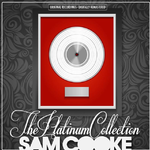姓名: EdwardArtemiev 英文名:- 性别:- 国籍:- 出生地:- 语言:- 生日:- 星座:- 身高:- 体重:-
提起俄罗斯导演就不得不提塔尔科夫斯基(Andrei Tarkovsky),他以博大深邃的精神气质与庄重沉郁的诗性叙事开创出崭新的艺术典范,是历史上无可争议的电影大家,而躲在塔尔科夫斯基身后的自然是他御用的电影配乐家Edward Artemiev,《飞向太空》(Solaris, 1972),《镜子》(The Mirror [Zerkalo], 1974)这些电影配乐都是由Edward Artemiev精心完成的,除了世人皆知的电影配乐 才华外,Edward Artemiev同时也是俄罗斯的电子音乐先锋,他从60年代就开始进行电子音乐的创作。令人遗憾的是,在将近半个世纪过去后人们所津津乐道的仅是Pierre Schaffer,Karlheinz Stockhausen等欧陆大师,而Edward Artemiev为当代电子音乐做出的巨大贡献却没有得到应有的浓重笔墨,这不能不说是历史的一次偏颇与不公。
值得令人庆幸的是在1996年,恰好正逢塔尔科夫斯基逝世10周年之际,不知道是天意使然,还是冥冥之中自有注定,Edward Artemiev的儿子---Artemiy Artemiev成立了俄罗斯第一家电子音乐\电子原音厂牌“Electroshock”,致力与出版俄罗斯和少量外国的电子音乐唱片。在过去的八年之间,“Electroshock”不仅如“盗墓者”般正式出版了Edward Artemiev早年的电子作品,让这些创造了电子音乐黎明的巨作得以重见天日,更重要的是“Electroshock”构建出俄罗斯电子音乐过去,现在,未来的大致轮廓。Artemiy Artemiev俨然成为了当今俄罗斯电子音乐的领军人物,将这片土地上最具创造力的音乐带进全世界乐迷的视线之内。虎父无犬子,用在Artemiy Artemiev倒是最合适
Biography
by Franois Couture
One of the leading composers of electronic music in Russia since the late '60s, Edward Artemiev is mostly known for his soundtracks for Andrei Tarkovsky's experimental science fiction films Solaris, The Mirror, and Stalker. He has also worked on films by Nikita Mikhalkov (Urga, Anna From 6 to 18, Soleil Trompeur), Andre Konchalovsky (Sibiriada, The Odyssey), and Hollywood productions. He has also written orchestral works and pieces fusing electronic and rock idioms. His music was hard to find during the Communist era. Since the early '90s, reissues and collections have multiplied, fostered by Artemiev's successes on the screen.
Artemiev is a classically trained composer and was a graduate from the Moscow Conservatory when he studied in Yuri Shaporin's class of composition. His career completely changed the day he met Eugene Murzin in 1960. The engineer had created a unique photo-electronic synthesizer (a machine that translated drawings on glass plates into sounds) back in 1955 and only a handful of composers had tried to explore its potential. Soon Artemiev became one of the select few. His interest in electronic music supplanted orchestral cares. His first major works were "Mosaic" (1967) and "Twelve Glimpses in the World of Sound" (1969).
In the 1970s, Artemiev worked at the Moscow Electronic Studio where avant-garde artists from many fields met to listen and discuss music. That led to his work with Tarkovsky, a collaboration that yielded some of his most-celebrated music. One of the first albums to document his music on another support than film was the soundtrack to Sibiriada (Sibériade), released in 1979 by the French ethnomusicological label Le Chant du Monde. By the end of the decade, the composer was moving a few steps away from the avant-garde. Strongly influenced by the electronic developments in rock music (progressive rock, Tangerine Dream), he invented his own personal form of "new simplicity" while trying to appeal to a new audience. The Olympic committee for the 1980 Moscow games commissioned him a piece for the opening ceremony and Artemiev wrote the cantata "Ode to the Herald of Good," which fuses orchestra, choir, rock group, and synthesizers. The piece, along with excerpts from various soundtracks, was released in 1984 on the LP Mood-Pictures by the U.S.S.R. state label Melodia -- Artemiev's only domestic release before the perestroika.
The '80s saw him come back to orchestral music: quasi-symphonies ("The Seven Gates into the World of Satori"), cantatas ("The Warmth of the Earth"), and more film music. When the Communist regime crumbled and the works of the aforementioned filmmakers were reissued on home video cassettes, Artemiev's reputation grew considerably. He stopped composing electro-acoustic music after "I'd Like to Return" (1993) to focus on his opera "Raskolnikov" (from the name of Dostoyevsky's hero in Crime and Punishment), completed almost a decade later, and more film soundtracks (more than 125 by 2001). Since 1997, his son, Artemiy Artemiev, has released many of his works on his label Electroshock.











